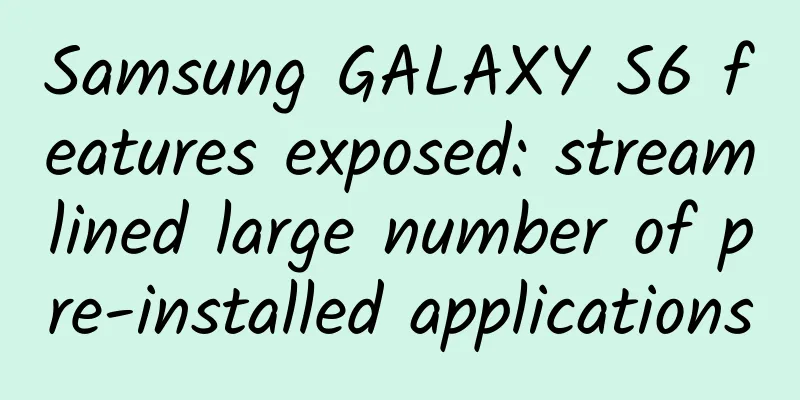Android is everywhere and invading Windows

|
Windows in the desktop era and Android in the mobile era each dominated an era, but they kept to themselves and no one could intrude on their boundaries. In the PC era, Microsoft used Windows to tie up a large number of OEMs and software developers, making Microsoft the most powerful. In the mobile Internet era, Google used Android to tie up a large number of OEM mobile phone manufacturers and application developers, almost monopolizing people's mobile devices. But this situation may have been broken by Google's App Runtime for Chrome at their 2014 I/O conference last year. Previously, this feature was limited to Chrome OS, but on the day before April Fool's Day, Google opened this permission to all developers. Android application developers can port their own applications to WIndows, OS X or Chrome OS. Google allows developers and users to run the ARC Welder plug-in for Android applications in multi-platform Chrome browsers. Users need to first download the operating environment of about 114M, and then install the plug-in body of about 11M. Android applications that users have installed and run in ARC Welder will appear in the Chrome browser application list as Chrome Apps. Android is everywhere, invading Windows Android is currently invading all your devices that can be connected to the Internet at an all-pervasive speed. Last year, Google released Android Wear, Android TV, Android Auto and other systems, indicating that Google wants to use Android to invade any of your devices that may be connected to the Internet in the future. This is Google's ambition to rule the world with Android. Now even Windows in the PC era cannot withstand the domineering Android. The App Runtime for Chrome plug-in that Google opened to all developers the day before April Fools' Day will enable Windows users to download Android applications from the Chrome Store as long as they use the Chrome browser. The inability to use Android apps on Windows has always been a big regret for users. In modern life, Windows and Android almost represent two states of people's work and life. You may be used to using PC for work and surfing the Internet, but you are used to using Android phones to play various mobile applications. In modern life where work and life are increasingly integrated, people cannot experience Android applications on PC, which actually gives users a strong sense of castration. People have a strong demand to play with Android applications while working. For example, you will use Word to write a report while using Ubisoft to anonymously complain about your dissatisfaction at work. In the past, you could only write a report on your PC while complaining on your phone, but after Android invaded Windows, you can completely download the Ubisoft App on Chrome and work together on your PC. Microsoft is currently unable to prevent this kind of technical means, and can only watch Android carve out a market share in its own territory. Windows Phone compatibility with Android, infiltrating the enemy Since Android can penetrate into Windows, Microsoft is not to be trifled with. According to Neowin***, Microsoft seems to be imitating BlackBerry and bringing Android application experience to WP users. In fact, as early as a year ago, when Nadella was thinking about the future of Windows Phone, he considered the possibility of running compatible Android applications. Once Windows Phone can be compatible with Android applications, it will solve the problem of Windows Phone's current lack of applications. Since the original intention of Android was to allow anyone to use its system, including its competitors. Open source is Android's biggest advantage, but its overly open nature also causes headaches for Google. On the surface, Windows Phone is compatible with Android applications, which is Microsoft's surrender to Google, indicating that the Windows Phone system is weak in the mobile Internet era, although this is also the reality. But from an internal perspective, it is the beginning of Windows Phone's revival. Microsoft only needs to build an Android application store similar to Amazon's deeply customized one on Windows Phone to provide the best Android application experience, plus the advantages of the Windows Phone system in terms of fluency and application switching, and the return of users is almost inevitable. As long as users are willing to start paying attention to using Windows Phone phones, then the snobbish mobile phone manufacturers will definitely cooperate with Microsoft, which is a win-win situation. The far-reaching significance behind Windows Phone's compatibility with Android is that it will most likely rejuvenate Windows Phone, which was squeezed out of the mainstream operating system by Android, although it will appear in a different form of resurrection. Developers seeking profit will not rule out porting Android applications to Windows Phone phones at the same time as developing them. After all, the time and effort spent on porting applications is far less than that spent on redeveloping applications on another system platform. If Microsoft is willing to completely put aside its pride and provide users with the Android application experience, the threat it poses to Google will be much more serious. After all, Microsoft and Google are almost mortal enemies in the business field. Microsoft is now trying to become a "Google"-style company, that is, the ultimate goal of selling devices is to sell more cloud services, so that people can't leave your products and can use your products on any platform, any device, and anywhere. Microsoft is invading users' phones in an all-pervasive manner. This is the new Microsoft. Today, Microsoft and Google are both good at cross-platform, and both hope that their products can be used by users on other platforms. They don't care about the devices users use, but they care very much that users are still using their products, so that they will have a sense of anxiety and presence in the ever-changing Internet era. This kind of technical competition is actually a great thing for users, and it is also what users want to see, giving users a more diversified choice. After all, some services really impress some users. For example, Windows Phone's compatibility with Android will surely move some persistent Microsoft fans to tears, as they no longer have to worry about discrimination in applications. |
>>: Previous generations dug holes, and later generations filled them up—how to dig out those bugs
Recommend
Chan Tui Decoction helps you sleep, while Danggui Huangqi Wolfberry Drink treats dysmenorrhea. Can the “ancient recipes” in Meng Hua Lu be used today?
Recently, the popular TV series "Dream of Sp...
Boom! It turns out that sound can be seen?
Around 00:07 on November 3 A loud noise suddenly ...
How much does a cloud server cost per year? One-year rental fee
How much does it cost to rent a cloud server for ...
As interesting as the short track speed skating competition is Wang Meng's commentary! Do you really know short track speed skating?
In the short track speed skating mixed team 2000m...
my country's first! The "Noah's Ark" of the seed industry is here
On October 20, China's first provincial compr...
Is the Internet a disaster for the film industry?
"The Internet may bring huge disaster to the...
Meta withdraws! Apple Vision Pro sells so badly that Zuckerberg calls it quits: no more high-end hybrid headsets! Netizens: tech companies have no new jobs
Produced by | 51CTO Technology Stack (WeChat ID: ...
39.8°C, high fever persists! Infection cases found in many places, be vigilant →
Summer is the peak season for herpetic pharyngiti...
Two boys were playing on the ice and fell into -10℃ cold water! How to save yourself if you fall into the water on the ice?
Around 4 p.m. on January 11 In a park in Shijiazh...
Is it true that an average of 50 people are infected every hour in Iran?
According to IRNA report on the 18th, Iranian Min...
Subsidy reduction, joint ventures challenge each other, how will domestic brands impact the new energy vehicle market
In 2016, the sales volume of China's new ener...
An iOS super app with billions of users, with 10 years of code changes, have you noticed?
By Dustin Shahidehpour Planning | Yan Zheng Faceb...
"Baojuan throat", "swallowing razor blades", "cement nose"... Try this to relieve the discomfort symptoms after "ejaculation" →
After "Yang" Common symptoms include So...
20 trends and heartfelt suggestions for brands in 2022
I have compiled 20 brand trends and suggestions f...
Coca-Cola's Centennial Marketing History (Part 2)
In the last article on Coca-Cola’s 100-year marke...









